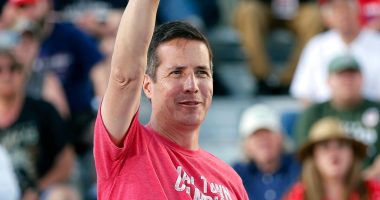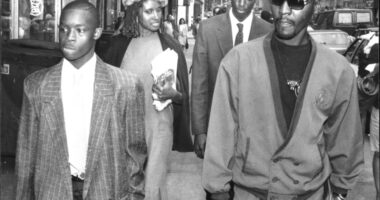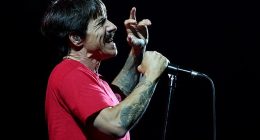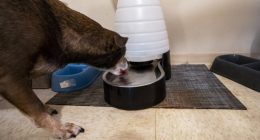
23andMe Inc. is teaming up with a blank-check company backed by British billionaire Richard Branson’s Virgin Group to go public in a deal that values the genetic-testing company at $3.5 billion, including debt.
California-based 23andMe will merge with Virgin Group’s VG Acquisition Corp VGAC 21.27% and raise a further $250 million from new investors, Mr. Branson and 23andMe Chief Executive Anne Wojcicki, said Thursday.
The genetics startup is the latest in a wave of companies making their public-market debuts through special-purpose acquisition companies rather than traditional initial public offerings. SPACs, also known as blank-check companies, turn the IPO process on its head by going public and raising cash without a business, and then searching for one to combine with.
Virgin Group floated its SPAC last October, raising $480 million.
The deal would help fund 23andMe’s transition away from the slowing consumer DNA-testing market toward the potentially more lucrative health market.
23andMe has for years used saliva test kits to tell millions of consumers how closely related they are to Neanderthals or whether they are likely to develop diseases like diabetes or Alzheimer’s. Mr. Branson, an early investor in the company, said he learned that his own great-great-grandmother was Indian after using its products.
The company organized buzzy “spit parties” with celebrities and others, to demonstrate the ease of using its tests. Many people gave the kits to relatives as holiday presents, encouraged by heartwarming ads about people finding out about their family histories and promotions that dropped the products’ prices below $100.
Over 25 million people are estimated to have been tested using various companies’ DNA products. But sales have since slowed, and 23andMe and rival Ancestry announced layoffs last year. Some executives say the market had become saturated as consumers interested in genetics have already bought a kit. Others attribute the downturn to privacy concerns after revelations that the FBI used consumer databases to help identify suspects of cold crimes based on relatives’ DNA.
Amid the slowdown, Blackstone Group Inc. acquired Ancestry for $4.7 billion last year, while earlier this year Australia’s MyDNA said it was acquiring Houston-based Gene by Gene Ltd. and FamilyTreeDNA. Terms of the deal weren’t disclosed.
“There is absolutely that slowdown,” Ms. Wojcicki said in an interview Thursday, adding that the company was shifting away from ancestry to focus on the health market. “We have always seen health as a much bigger opportunity.”
With a database of over 10 million customers, 23andMe said it can still conduct health research even if sales continue to slow. Over 80% of customers have agreed to participate in research, and customers every day fill out over 30,000 surveys on various health and related issues, it said.
The company said it can leverage existing customers, such as the 1.7 million in the database with high cholesterol, nearly 1.6 million with depression and 539,000 with Type 2 diabetes, to ask research questions and identify people who might want to participate in clinical trials.
23andMe signed a deal with GlaxoSmithKline PLC in 2018 to allow the pharmaceutical giant to use the startup’s database to help identify targets for drug discovery. 23andMe is also developing drug candidates on its own. All told, it says it has a pipeline of more than 30 therapeutic programs, spanning oncology, respiratory, cardiovascular and other diseases.
Last year, 23andMe launched a subscription product offering health information to customers, which Ms. Wojcicki said had already garnered over 75,000 subscribers. The company charges $29 for the subscription but said it is still testing pricing levels and features.
For Mr. Branson, Thursday’s deal comes as his sprawling portfolio has been particularly hard hit by the coronavirus pandemic, which has devastated the travel and tourism industry long at Virgin’s core.
The entrepreneur’s two space ventures, though, have seen increased investor interest. Shares in space tourism company Virgin Galactic Holding’s Inc. are up 140% this year to date, while last month Virgin Orbit, a venture to launch small satellites, deployed 10 tiny ones into orbit for the first time.
Mr. Branson said around 80% of the business was hit by the pandemic. “Through diversification the Virgin Group has got through it all, the companies have survived and we will come back stronger by the summer, once we are out of Covid,” he said in an interview.
He said that some parts of his business might call for more cash, mentioning a global health and gym business, and that Virgin Group would recapitalize any company that needs it.
Write to Alistair MacDonald at [email protected] and Amy Dockser Marcus at [email protected]
Copyright ©2020 Dow Jones & Company, Inc. All Rights Reserved. 87990cbe856818d5eddac44c7b1cdeb8









